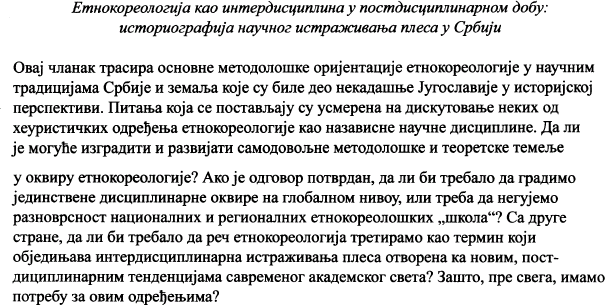Published online by Cambridge University Press: 06 December 2018
Although (ethno)choreology within European scholarship maintains its continuity as a methodologically and theoretically grounded discipline, there is an ongoing need among scholars to re-evaluate its traits and achievements and (re)position it within both the social sciences and/or humanities. Sustained scholarly attention to basic questions about the nature of the field of study encourages discussion and debate about a number of issues, including the name of the discipline and whether it should specify the object of research (e.g., Lange 1981:5; Giurchescu 2007:5; Koutsouba 2008:227) or designate the “perspective” of its investigation Giurchescu and Torp 1991:1; Ivanova-Nyberg 2011:31). These ongoing dialogues also support debate on the basic epistemological and methodological orientation of “constructing dance knowledge” (Gore and Bakka 2007:93), which during recent decades has fluctuated between empirical and hermeneutic poles (Bakka and Karoblis 2010:179–84).
